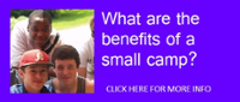Irrespective of whether you are an new camper eight year- old battling with anxiety, a 12-year-old veteran camper struggling with concentration and expressive regulation, or a counselor who is just anxious and astounded, these three simple practices and breathing exercises can lessen tension, increase contentment, and generate permanent behaviors for wellness and pliability.
1) Mindful breathing is simply conveying your consciousness to the breath and is at the center of a recognized mindfulness exercise. It also turns out to be one of the greatest means to calm the anxiety reaction in the brain. When you practice mindful breathing habitually you make the prefrontal cortex tougher and produce a tranquil yet attentive state of mind by focusing your attention to each breath in and each breath out.
Secrets of performing mindful breathing at summer camp:
 Life at an overnight summer camp can seem busy. If you find time to take two to five minutes a day to bring your consciousness to your breath just prior to morning circle and broadcasts, just prior to a meal, or for the duration of conversions in the middle of happenings.
Life at an overnight summer camp can seem busy. If you find time to take two to five minutes a day to bring your consciousness to your breath just prior to morning circle and broadcasts, just prior to a meal, or for the duration of conversions in the middle of happenings.- Begin with five mindful breaths, unstiffening your face and focusing your complete concentration to the inhalation and exhalation. Keep an eye on what parts of your body move with the breathe in; notice if your breath is strenuous or even, lengthy or small; request your exhalation to be a little bit sluggish.
- Acquaint with finger breathing, an exceptional practice for the camper who cannot sit immobile through instructions or broadcasts. Line up each fingertip with the analogous fingertips of the contrasting hand. Pull the fingers close together and with the breath in extend the fingers, elongating them out while making sure the tips joined; with the breath out, let the fingers pull back together. Permit the fingers to shadow the breath in and out, escalating and narrowing.
- Exercise when your campers are comfortable and not under strain so they can make use of this skill when anxiety grows.
- Make certain your counselors exercise along with your campers. Study on our program validates anxiety reduction advantages for the grownups who exercise with the youngsters with whom they work.
2) Mindful listening demonstrates you how to have good concentration and to pay attention. It aids you in focusing, concentrating, and how to be more resourceful and fruitful with a lesser amount of unfocused attention. When you exercise mindful listening you are exciting the Reticular Activating System (RAS) in the brain. This structure assists the brain to screen through all inward stimuli and decide which stimulus is the most vital to concentrate on at that time. It permits you to screen out thoughts about what is essential for you to do in the future and what you failed to recall what you had to do the previous day, to concentrate on what you require to do right this very instant.
Keys to performing mindful listening at camp:
- Take two to five minutes a day to bring your focus to your listening at the identical spot you pass by every morning, during snack, or in advance to your end-of-day departing.
- Exercise concentrated listening. By means of a chime or a tone bar, ring the bell and have your campers pay attention to the sound for as long as they can and raise their hand when they cannot hear the sound anymore.
- Rehearse open listening. When sitting at the sanctuary or congregation space, take 60 seconds to pay attention to the farthest away sound you can make out. Then share what was picked up.
3)  Focusing on your emotions toughens the neural networks in the prefrontal cortex and permits you to bring a more optimistic emphasis on your everyday lives. Making "Rose, Bud, and Thorn" share of your everyday schedule does just this. Paying attention to your rose, something nice that you might have experienced over the course of the day facilitates you to bring conscious awareness to nice experiences so they don't bounce right back off. You have to keep your focus on them for more than a few seconds to etch them in your neural pathways. A bud is a performance of compassion that you watched or introduced. When campers know these actions will be talked over around a campfire or in the bunk at the end of a day, they will look for chances for compassion during the course of the day, and their minds will start to concentrate on the encouraging experiences rather than the bad ones. Recognizing a thorn, a blunder you learned from that day, reminds everybody that errors are a part of life and a chance for development. It reduces the perception that your campers are required to be flawless, which generates a lot of anxiety in the mind and leads to the youngsters not willing to take any risk.
Focusing on your emotions toughens the neural networks in the prefrontal cortex and permits you to bring a more optimistic emphasis on your everyday lives. Making "Rose, Bud, and Thorn" share of your everyday schedule does just this. Paying attention to your rose, something nice that you might have experienced over the course of the day facilitates you to bring conscious awareness to nice experiences so they don't bounce right back off. You have to keep your focus on them for more than a few seconds to etch them in your neural pathways. A bud is a performance of compassion that you watched or introduced. When campers know these actions will be talked over around a campfire or in the bunk at the end of a day, they will look for chances for compassion during the course of the day, and their minds will start to concentrate on the encouraging experiences rather than the bad ones. Recognizing a thorn, a blunder you learned from that day, reminds everybody that errors are a part of life and a chance for development. It reduces the perception that your campers are required to be flawless, which generates a lot of anxiety in the mind and leads to the youngsters not willing to take any risk.
Keys to performing paying attention to feelings at camp:
- Around the campfire, or with a small cabin crowd at the conclusion of the day, play Rose, Bud, and Thorn.
- Go around the ring and have every individual share their rose, their bud, and their thorn.
- Do not forget that the roses do not need to be something outstanding, buds do not require to be soul smashing, and thorns do not need be outrageous. Have your counselor’s model observing and recognizing the minor things that shape their day.
Author Bio.
Umer Ishfaq is a Search Engine and Content Marketing expert at Techvando. A writer by day and reader by night, his passion for helping people in all aspects of online marketing flows through in the expert industry coverage he provides.

.png)
